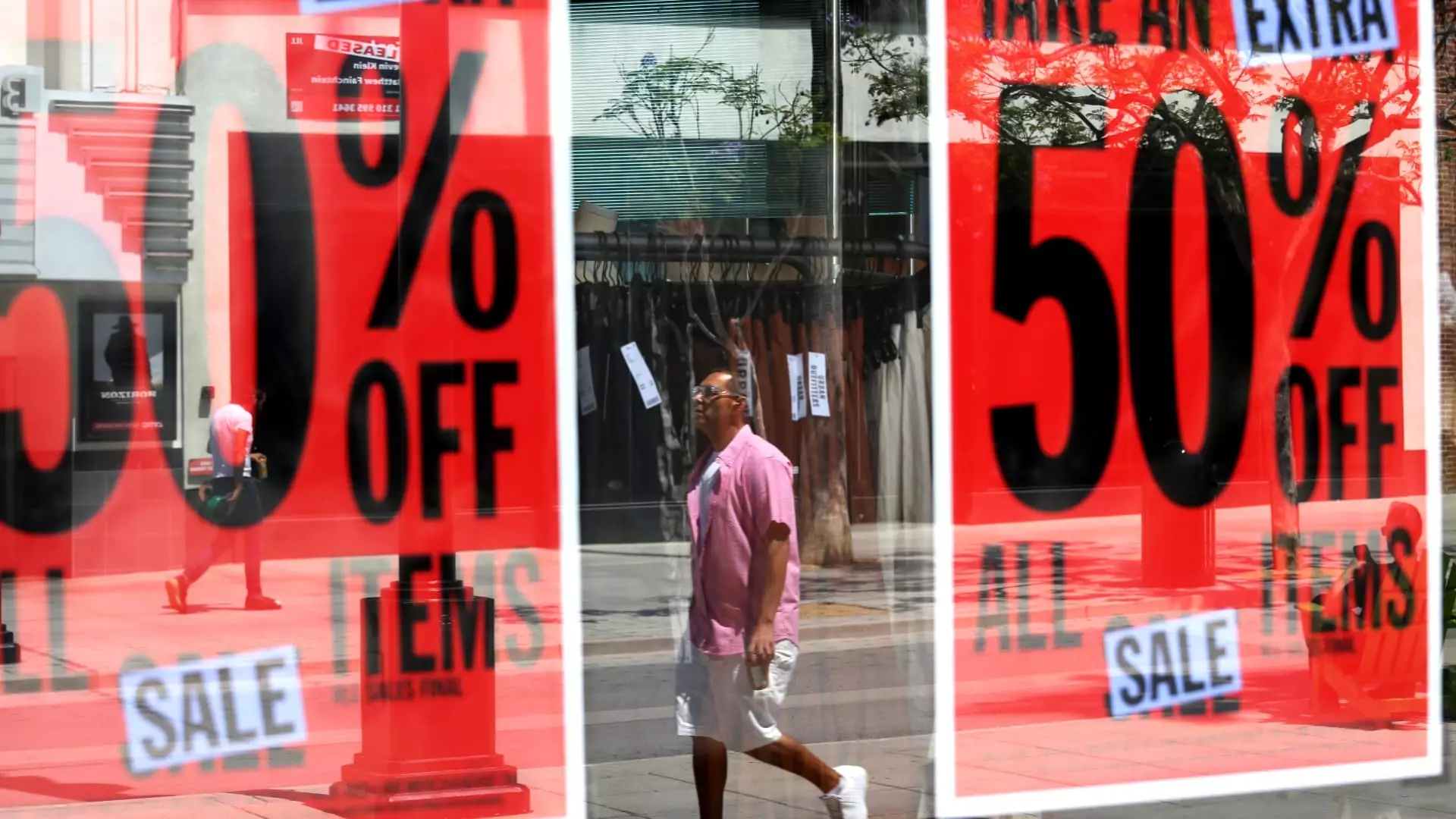As the economic landscape shifts beneath the feet of retailers, the specter of tariffs looms large. President Trump’s trade war has created a chaotic environment where consumer spending is expected to falter. Brands are not merely waiting for the storm to pass; they are instead seizing the moment to craft targeted marketing strategies that underline urgency. “Buy now before prices spike!” has become the rallying cry of numerous retailers. With tariffs threatening steep price increases and product shortages, brands like Beis, Bare Necessities, and Fashion Nova have ingeniously incorporated the looming threat into their campaigns. This is not about just responding to the market; it’s about proactively creating a sense of urgency, all while navigating a minefield of uncertainty.
The announcement of reciprocal tariffs sent waves of anxiety through the retail sector. It’s not just a question of cost but a deeper existential crisis pricking at the heart of businesses that thrive on consumer whimsy—products that many could comfortably do without. As the dust settles on temporary tariff reductions for some countries, the broader retail industry remains in crisis mode, desperately trying to predict how this economic policy will influence their operations and consumer behavior.
Preemptive Promotions and Cash Flow
In a surprising twist, some retailers are opting for preemptive promotions, adopting strategies that may seem financially counterintuitive. For instance, Bare Necessities initiated a “pre-tariff sale,” offering consumers significant discounts to encourage immediate purchasing. The underlying logic is simple; in a potential downturn, securing cash flow today is far superior to waiting until product prices rise and sales slow. This perspective is echoed by industry experts who assert that it’s better to capture 80% of the revenue now rather than risk having unsold inventory later.
For smaller brands that lack the deep pockets and global reach of larger retailers, the stakes are considerably higher. They face limited options when it comes to diversifying their supply chains. Lauren Beitelspacher, a professor of marketing, notes that smaller companies are more vulnerable to the impacts of tariffs, underscoring a harsh reality: impending tariffs may spell disaster for those with fewer resources to absorb the inevitable fluctuations in costs.
The Humor Strategy
In a peculiar twist, humor is being weaponized in marketing as a strategy to diffuse the seriousness of the tariff crisis. Luggage brand Beis, in a candid letter to its customers, allowed a touch of levity to surface amidst the chaos. By weaving jokes into the fabric of their message—discussions of ramen diets and spreadsheets that have their own spreadsheets—the brand managed to humanize itself while still subtly pushing consumers to make purchases before potential price hikes.
Barbara Kahn from The Wharton School highlights this strategy’s effectiveness; by using humor, brands can navigate politically charged issues while avoiding alienating potential customers. In a time when consumers are already on edge, brands that can communicate without taking political stances—and blend their messages with humor—are likely to carve out a connection with their audience.
The Psychological Consumer
Recent data suggests that consumers, particularly those with disposable income, are taking the bait. Reports indicate that March spending exceeded expectations, possibly due to consumer panic regarding potential price increases. Shoppers are acting on the urgency created by announcements surrounding tariffs, eager to secure big-ticket items before prices potentially escalate. This psychological facet of consumer behavior showcases the delicate dance retailers must perform—while trying to engage consumers emotionally, they also must establish a solid financial footing.
Sonia Lapinsky, a managing director at AlixPartners, argues that a cautious consumer base has been a persistent reality since early in the year. The focus on short-term sales today could be the difference between thriving and merely surviving through the impending economic challenges. The prevailing sentiment is clear: make your move before it’s too late, and retailers are savvy enough to harness this urgency for their benefit.
A New Era of Retailing
The challenges posed by tariffs are ushering in an unprecedented era for retailers, where survival hinges not just on product quality or brand loyalty, but on the ability to adapt quickly to an evolving market landscape. The dynamic interplay of urgency, humor, and strategic discounting paints a vivid picture of an industry in flux. As retailers scramble to make sense of how tariffs may reshape consumer habits and demand, their marketing strategies reflect a broader truth: in this climate of uncertainty, adaptability will be the determining factor for survival.
Navigating these stormy waters is far from simple, but those retailers who can turn obstacles into opportunities may ultimately find themselves thriving in a landscape that has become anything but predictable.

